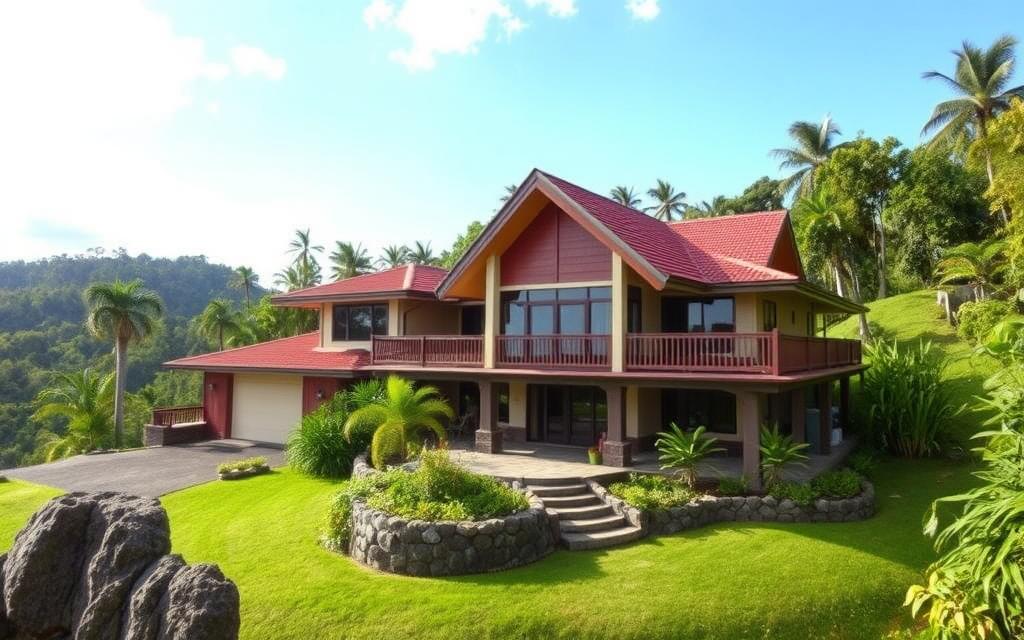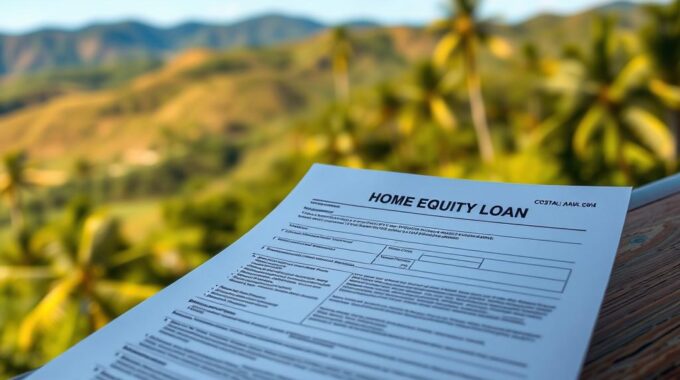Compare home equity loans and reverse mortgages in Costa Rica. Find out which option is best for you with our comprehensive guide, featuring competitive rates and lower fees.

Discover the Advantages of Secure Hard Money Lending Costa Rica
Investing in Costa Rica’s real estate market can be a lucrative opportunity, but securing financing can be challenging, especially for foreign investors. Traditional banking options often require strong ties to the country, known as “arraigo,” making it difficult for non-residents to obtain loans.
GAP Investments provides tailored financing solutions for private investors, understanding the unique needs of foreign and expat investors. They prioritize safety and risk management, offering a secure investment environment. Private lenders in Costa Rica offer financing options with interest rates between 12-18% in US dollars.
Hard money lending has emerged as a viable alternative, focusing on the property’s value rather than the borrower’s credit history. This comprehensive guide will explore how hard money lending works in Costa Rica, its security measures, and the types of properties eligible for financing.
Understanding Hard Money Lending in Costa Rica
Understanding the nuances of hard money lending is crucial for investors seeking to navigate Costa Rica’s complex financing landscape. Hard money lending has become an essential tool for real estate investors looking to secure financing quickly and efficiently.
What Is Hard Money Lending?
Hard money lending refers to a type of financing where a lender provides a loan to a borrower based on the value of the property being purchased, rather than the borrower’s creditworthiness. This type of lending is often used by real estate investors who require quick access to capital or have difficulty securing traditional financing. In Costa Rica, hard money lenders offer financing options for various types of properties, including residential and commercial real estate.
How Hard Money Lending Differs from Traditional Financing
Hard money lending differs significantly from traditional financing options in Costa Rica. Traditional banks typically require a strong credit history, a significant down payment, and a lengthy approval process. In contrast, hard money lenders focus on the property’s value and the investor’s exit strategy, offering more flexible terms and faster approval times. This makes hard money lending an attractive option for foreign investors who may not have an established credit history in Costa Rica.
The Current Financing Landscape in Costa Rica
The financing landscape in Costa Rica presents challenges for foreign investors, as traditional banks prefer lending to citizens and residents with established ties to the country, known as “arraigo.” While some banks may finance up to 80% of the appraised value of houses, raw land typically qualifies for no more than 50-70% financing. The gap in the financing market has created opportunities for private lenders and hard money loan providers who cater to international investors in the Costa Rican real estate market.
The Advantages of Secure Hard Money Lending in Costa Rica

The advantages of secure hard money lending in Costa Rica are multifaceted, providing investors with a robust financing solution that caters to their unique needs. GAP Investments specializes in offering tailored financing options for private investors interested in Costa Rica’s real estate market.
Speed and Efficiency of Loan Processing
One of the primary benefits of hard money lending in Costa Rica is the speed and efficiency of loan processing. Unlike traditional financing methods, hard money lenders can provide rapid approval and disbursement, enabling investors to capitalize on time-sensitive opportunities. This swift process is particularly advantageous in competitive real estate markets.
Flexibility in Loan Terms and Requirements
Hard money lenders in Costa Rica offer flexible loan terms and requirements that are often more accommodating than those of traditional banks. This flexibility allows investors to negotiate loan conditions that better suit their investment strategies and financial situations. For instance, hard money lenders may consider alternative forms of collateral or income verification methods.
Accessibility for Foreign Investors
Foreign investors frequently encounter substantial obstacles when seeking traditional financing in Costa Rica. Hard money lenders, however, specialize in working with international investors, providing financing solutions that accommodate their unique circumstances. The asset-based lending approach focuses on the property’s value and potential, leveling the playing field for foreign investors. For more information on hard money loans for property in Costa Rica, visit GAP Investments.
Key benefits for foreign investors include:
- Financing solutions tailored to international investors’ needs
- Asset-based lending that prioritizes property value over local credit history
- Guidance through Costa Rica’s legal framework for property acquisition and financing
- Loans structured in US dollars to eliminate currency exchange risks
Security Measures in Costa Rican Hard Money Lending
In Costa Rica, hard money lending is fortified with robust security measures to safeguard both lenders and borrowers. This secure environment is crucial for attracting foreign investment and facilitating successful real estate transactions.
Legal Protections for Lenders and Borrowers
The legal framework in Costa Rica provides comprehensive protections for both parties in a hard money lending transaction. A typical mortgage contract outlines the terms of the loan, including the principal amount, interest rates, repayment schedule, and the mortgage encumbrance on the property. This legal structure ensures clarity and security for lenders and borrowers alike, operating within Costa Rica.
Collateral Requirements and Asset Verification
Hard money lenders in Costa Rica implement conservative loan-to-value ratios, typically lending between 50-70% of a property’s appraised value. This approach creates a substantial equity cushion against market fluctuations, enhancing the security of the loan. Additionally, lenders often require detailed documentation of the borrower’s investment strategy and exit plan to ensure alignment with the loan structure.

Risk Management Strategies
To further mitigate risk, lenders in Costa Rica may employ several strategies, including regular property inspections for development loans and requiring additional security measures such as personal guarantees or reserve accounts. Higher interest rates on hard money loans also incentivize borrowers to maintain timely payments and execute their exit strategies efficiently, thereby reducing the lender’s risk.
Types of Properties Eligible for Hard Money Loans
Hard money loans in Costa Rica are available for different property types, catering to various investment needs. This flexibility makes hard money lending an attractive option for investors looking to diversify their portfolios.
Residential Real Estate Options
Residential properties, including single-family homes and apartments, are eligible for hard money loans. These properties can be used for personal residence or rental income, offering investors a range of opportunities. For more information on the requirements for hard money loans, visit GAP Investments.
Commercial Property Financing
Commercial properties, such as office buildings, retail spaces, and hotels, can also be financed through hard money loans. These loans provide the necessary capital for investors to acquire or renovate commercial real estate.
Land and Development Projects
Raw land and development projects are eligible for hard money financing, although the loan-to-value ratio is typically lower, around 50% or less, due to the higher risk associated with land development. Development projects with approved permits and clear construction plans may qualify for higher loan amounts.
Additionally, agricultural land with productive capacity and coastal properties within the maritime zone can qualify for specialized hard money loans, taking into account both land value and income potential.
GAP Investments: A Trusted Hard Money Lender in Costa Rica

With years of expertise, GAP Investments has become a go-to hard money lender for investors looking to capitalize on Costa Rica’s booming real estate market. The company’s extensive knowledge and experience in the Costa Rican property market make it an ideal partner for investors seeking financing solutions.
Company Background and Expertise
GAP Investments has established itself as a trusted hard money lender in Costa Rica, with a deep understanding of the local real estate market and a proven track record of providing financing solutions for various investment projects. The company’s expertise spans multiple areas, including residential and commercial properties, as well as land development projects.
Loan Products and Interest Rates
GAP Investments offers a range of loan products tailored to meet the diverse needs of its clients, including short-term bridge loans, long-term financing, and flexible repayment terms. The company’s interest rates are competitive, and it works closely with clients to determine the most suitable financing options for their investment goals.
The company’s loan products have been successfully utilized by various clients, including foreign investors, real estate developers, expatriate entrepreneurs, investment groups, and long-term investors. These clients have benefited from GAP Investments’ financing solutions, achieving their investment objectives and succeeding in Costa Rica’s competitive real estate market.
Client Success Stories
GAP Investments has helped numerous clients succeed in Costa Rica’s real estate market. Some examples include:
- Foreign investors who have acquired vacation properties in Costa Rica’s popular coastal areas, completing renovations and generating rental income.
- Real estate developers who have partnered with GAP Investments to fund multi-phase residential projects, aligning capital needs with construction timelines and sales projections.
- Expatriate entrepreneurs who have secured funding for commercial properties to house their Costa Rican business operations.
- Investment groups that have leveraged GAP Investments’ financing to acquire and reposition underperforming properties, creating value through strategic improvements and professional management.
- Long-term investors who have used GAP Investments’ loans as bridge financing to secure properties quickly, later transitioning to traditional financing.
With years of expertise, GAP Investments has helped many clients succeed in Costa Rica’s real estate market, providing financing solutions that meet their unique needs and goals.
The Hard Money Lending Process in Costa Rica
Costa Rica’s hard money lending market offers a streamlined process for investors to access capital rapidly. This process is designed to be efficient, allowing investors to secure financing quickly and effectively.
Application and Documentation Requirements
The initial step in the hard money lending process involves applying along with necessary documentation. Borrowers are typically required to provide identification, proof of income, and details about the property being used as collateral. Most lenders have their own appraisers, so it’s essential to factor in a potentially lower appraisal than the purchase price when making an offer.
Property Appraisal and Valuation
Following the application, the lender conducts a property appraisal to determine its value. This step is crucial as it directly affects the loan amount. Investors should be prepared for the possibility that the appraisal value may be lower than the purchase price, and plan accordingly.
Loan Approval and Funding Timeline
The hard money loan approval process in Costa Rica is notably swift. Key milestones include:
- Preliminary approvals are often granted within 24-48 hours of receiving a complete application.
- The formal underwriting process, including property appraisal and title verification, is typically completed within 1-2 weeks.
- Loan documents are prepared and notarized according to Costa Rican law, with closing usually scheduled within 2-3 weeks of the initial application.
- Funding is disbursed immediately after closing, enabling borrowers to proceed with their investments without delay.
For construction or development loans, funding is structured in phases tied to project milestones, with inspections required before additional funds are released.
Comparing Hard Money Loans to Other Financing Options
When considering financing options for real estate investments in Costa Rica, it’s essential to understand the differences between hard money loans and other available choices. This comparison will help investors make informed decisions about their financial strategies.
Traditional Bank Loans vs. Hard Money Loans
Traditional bank loans often have stricter requirements and longer processing times compared to hard money loans. While bank loans may offer lower interest rates, they typically require a higher credit score and more extensive documentation. In contrast, hard money loans focus on the value of the underlying asset, providing a faster and more flexible financing option for investors in Costa Rica. For instance, GAP Investments offers hard money loans with competitive interest rates and streamlined processing.
Private Lenders vs. Institutional Lenders
Private lenders and institutional lenders have different approaches to hard money lending. Private lenders often provide more personalized service and flexibility in loan terms, while institutional lenders may offer more standardized products. In Costa Rica, both types of lenders play a crucial role in the hard money lending market, providing investors with various options for securing financing. The choice between private and institutional lenders depends on the investor’s specific needs and the type of assets being used as collateral.
Mortgage Bonds and Alternative Financing Structures
Costa Rica offers unique financing instruments, such as mortgage bonds (Cédulas Hipotecarias), which allow property owners to issue debt securities against their real estate. These bonds can be transferred by endorsement or issued to bearer, providing a secure and flexible financing option. Other alternative structures, including trust arrangements and joint ventures, also offer investors diverse ways to finance their projects. Understanding the legal implications and tax considerations of these alternatives is crucial for making informed investment decisions.
Conclusion: Is Hard Money Lending Right for Your Costa Rican Investment?
For investors considering real estate opportunities in Costa Rica, hard money lending presents a compelling alternative to traditional financing methods. It offers significant advantages for certain types of investments, particularly those requiring quick funding or involving properties that don’t fit conventional lending criteria.
GAP Investments offers customized hard money lending solutions for Costa Rican real estate investments, with loan amounts starting from $50,000 and competitive interest rates. Investors can also participate as private lenders in secured real estate loans with returns starting at 12% annually. To learn more, visit GAP Investments or contact them directly.
Whether pursuing property acquisition or development projects, hard money lending is a viable financing option in Costa Rica. Carefully evaluate your investment timeline and financial capacity to ensure the loan terms align with your objectives.


